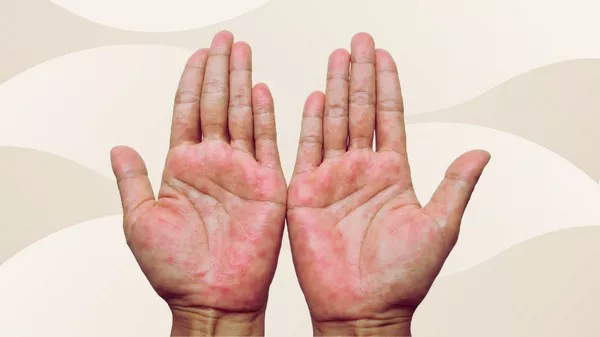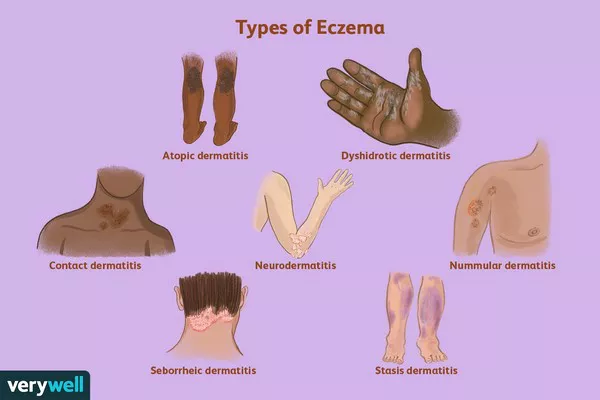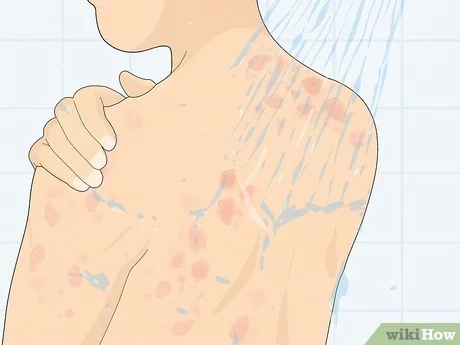Eczema, a chronic inflammatory skin condition, affects millions worldwide, causing discomfort, itchiness, and sometimes even emotional distress. While management strategies can alleviate symptoms temporarily, the recurrence of eczema remains a frustrating reality for many sufferers. Understanding why eczema comes back is crucial for devising effective long-term management plans. In this article, we delve into the multifaceted factors contributing to eczema recurrence and explore strategies for mitigating its return.
The Nature of Eczema: A Complex Interplay
Eczema, also known as atopic dermatitis, manifests as red, itchy patches on the skin, often occurring in flare-ups. Its etiology is multifactorial, involving genetic predisposition, immune dysregulation, environmental triggers, and impaired skin barrier function. While the exact mechanisms driving eczema recurrence are not fully elucidated, several interconnected factors contribute to its persistence.
Genetic Predisposition: The Blueprint of Susceptibility
Genetics play a significant role in eczema susceptibility, with a family history of atopic conditions predisposing individuals to develop the condition. Variations in genes associated with skin barrier function, immune response, and inflammation influence one’s vulnerability to eczema. While genetic predisposition alone does not determine eczema recurrence, it sets the stage for other triggering factors to come into play.
Immune Dysregulation: The Culprit Behind Inflammation
Immune dysregulation lies at the heart of eczema pathogenesis, characterized by an exaggerated immune response to environmental triggers. In individuals with eczema, the immune system reacts excessively to perceived threats, releasing inflammatory mediators that exacerbate skin inflammation and itching. This dysregulated immune response primes the skin for recurrent flare-ups, perpetuating the cycle of eczema.
Environmental Triggers: Unveiling Hidden Culprits
Environmental factors play a pivotal role in triggering eczema flare-ups, with various allergens, irritants, and climatic conditions exacerbating symptoms. Common triggers include pollen, dust mites, pet dander, harsh chemicals, and extreme temperatures. Identifying and avoiding these triggers is essential for minimizing the risk of eczema recurrence. Additionally, lifestyle factors such as stress, poor sleep, and dietary choices can influence eczema severity and recurrence rates.
Skin Barrier Dysfunction: The Weak Link
Impaired skin barrier function is a hallmark feature of eczema, allowing irritants, allergens, and microbes to penetrate the skin easily, triggering inflammatory responses. Disruption of the skin barrier can result from genetic mutations affecting proteins like filaggrin, which play a crucial role in maintaining skin integrity. Additionally, frequent exposure to harsh soaps, hot water, and abrasive skincare products further compromises the skin barrier, predisposing individuals to eczema recurrence.
Microbiome Imbalance: The Microscopic Players
The skin microbiome, comprising a diverse community of microorganisms, plays a vital role in skin health and immunity. In individuals with eczema, alterations in the skin microbiome, characterized by reduced microbial diversity and overgrowth of pathogenic bacteria, contribute to inflammation and skin barrier dysfunction. Restoring microbial balance through probiotics, topical treatments, and gentle skincare practices may help prevent eczema recurrence.
Psychosocial Factors: The Mind-Skin Connection
Psychosocial factors such as stress, anxiety, and depression exert a significant influence on eczema severity and recurrence. Stress triggers the release of hormones like cortisol, which can exacerbate inflammation and weaken the skin barrier. Moreover, psychological distress associated with living with a chronic skin condition can further exacerbate symptoms and contribute to the recurrence of eczema. Implementing stress-reduction techniques, seeking psychological support, and fostering a supportive social network are crucial for managing eczema and preventing relapses.
Treatment Approaches: Navigating the Path to Prevention
Effective management of eczema recurrence requires a multifaceted approach targeting its underlying causes and triggers. Key strategies include:
1. Emollients and Moisturizers: Regular use of emollients and moisturizers helps restore skin hydration, strengthen the skin barrier, and reduce the risk of eczema flare-ups.
2. Topical Corticosteroids and Immunomodulators: These medications help alleviate inflammation and itching during flare-ups, but long-term use should be monitored to prevent side effects.
3. Avoidance of Triggers: Identifying and avoiding environmental triggers such as allergens, irritants, and stressors is crucial for preventing eczema recurrence.
4. Proper Skincare Practices: Gentle skincare routines involving mild cleansers, lukewarm water, and fragrance-free products help maintain skin health and reduce the risk of irritation.
5. Stress Management: Incorporating stress-reduction techniques such as mindfulness, yoga, and deep breathing exercises can help mitigate the impact of psychosocial factors on eczema recurrence.
6. Dietary Modifications: Some individuals may benefit from dietary modifications, such as avoiding common food allergens or incorporating anti-inflammatory foods rich in omega-3 fatty acids and antioxidants.
7. Regular Monitoring and Follow-up: Regular consultations with healthcare providers, dermatologists, or allergists allow for ongoing monitoring of eczema symptoms and treatment adjustments as needed.
Conclusion: Navigating the Path to Long-term Relief
Eczema recurrence is a complex phenomenon influenced by genetic predisposition, immune dysregulation, environmental triggers, impaired skin barrier function, microbiome imbalance, and psychosocial factors. Understanding the interplay of these factors is crucial for devising effective long-term management strategies aimed at preventing eczema flare-ups and improving quality of life for individuals living with this chronic condition. By adopting a holistic approach encompassing skincare practices, stress management, trigger avoidance, and targeted treatments, individuals with eczema can navigate the path to long-term relief and minimize the burden of recurrent flare-ups.


























